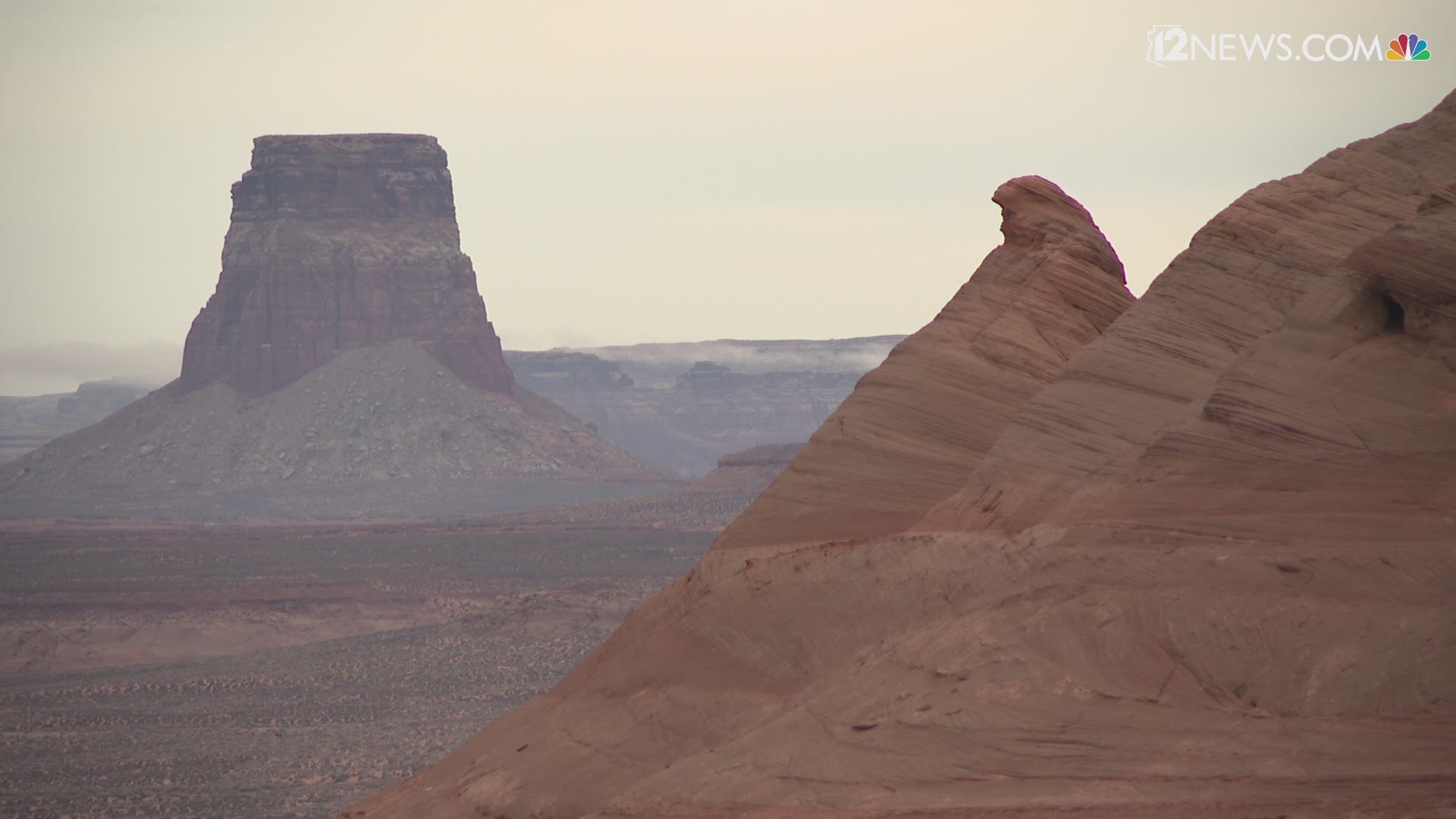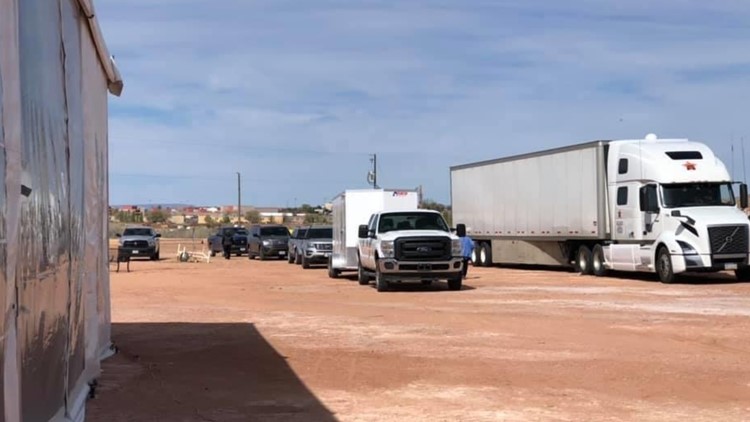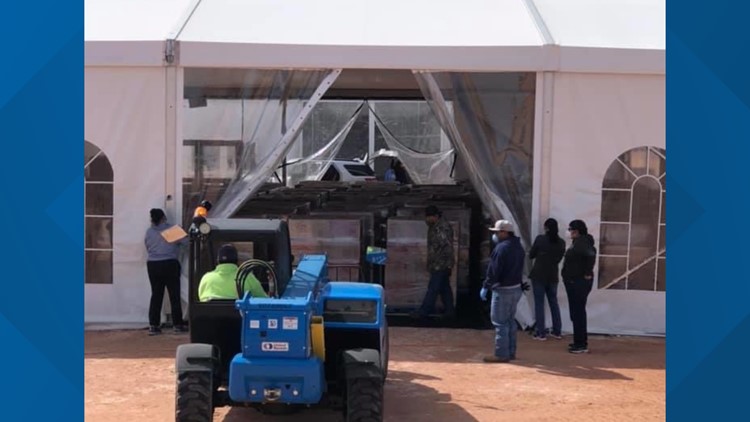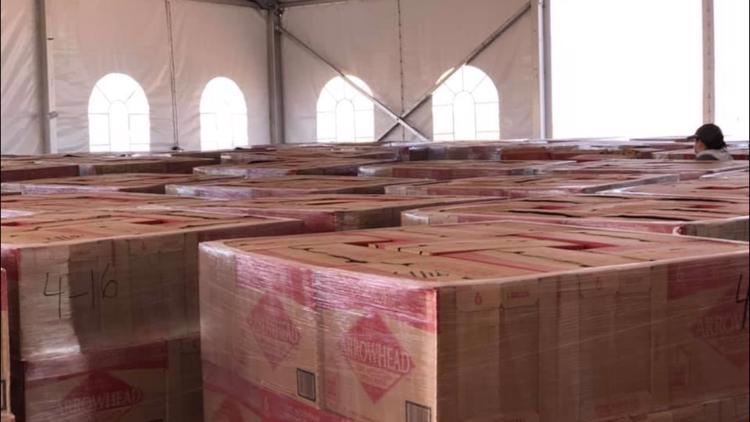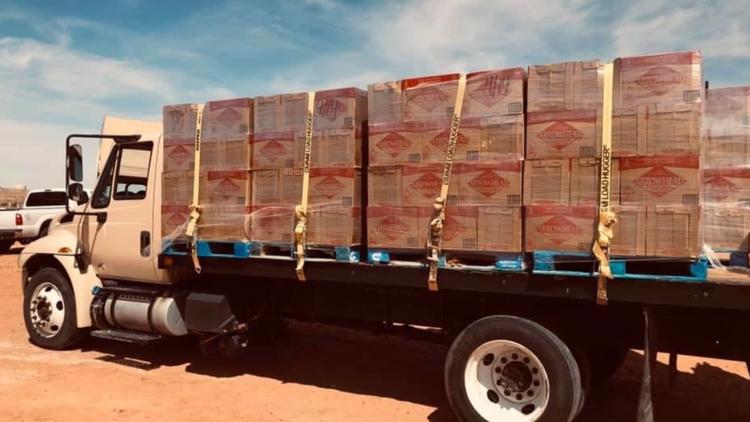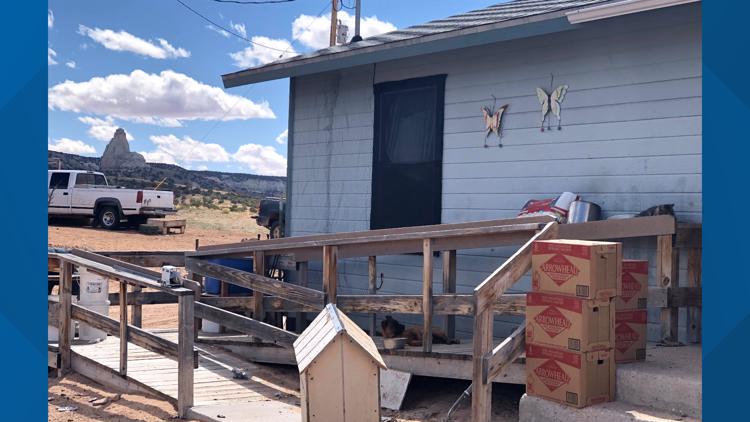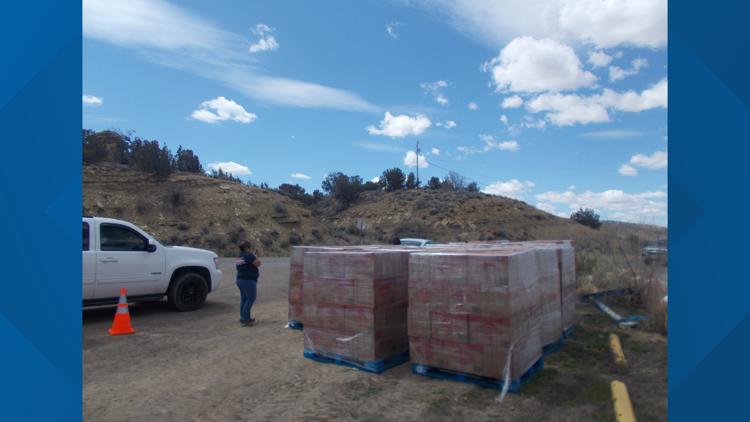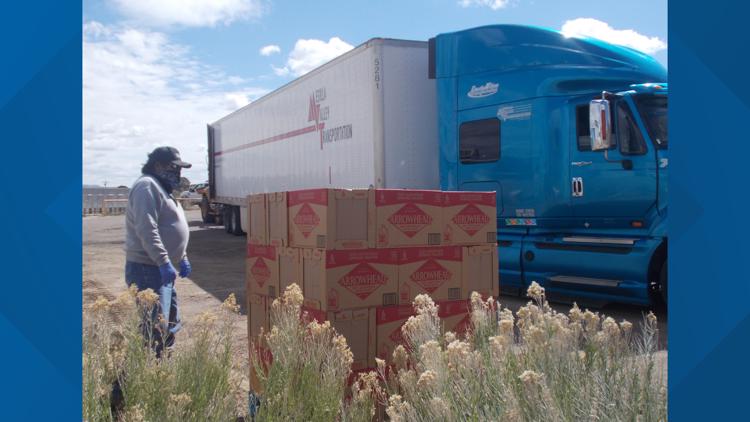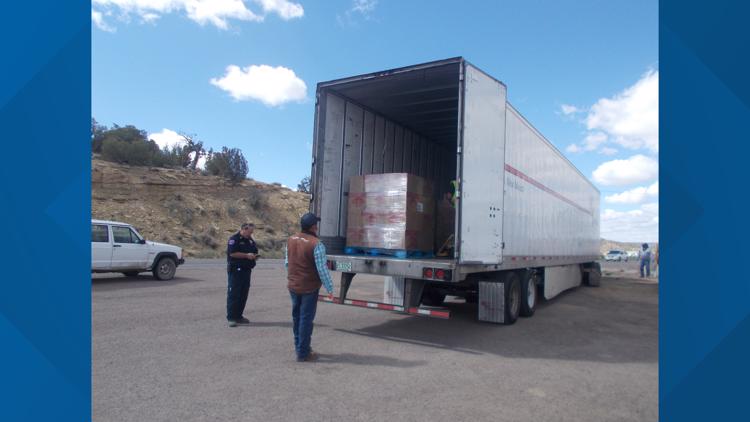NAVAJO COUNTY, Ariz. — The Navajo Nation has the third-highest COVID-19 infection rate in the United States, after New York and New Jersey. The infection rate is so high partially due to the fact that 30% of residents on the Nation don't have running water in their homes. This makes it difficult for people to wash their hands, one of the easiest ways to stop the spread of coronavirus.
DigDeep, a non-profit traditionally focused on installing running water systems in homes on the Navajo Nation through the Navajo Water Project, has turned into a relief organization. They are delivering water to homes that have already received water systems, but they are also delivering bottled water to homes that don't have systems.
A partnership with Nestle Water has allowed them to distribute 248,000 gallons of water to residents. The organization estimates that in the first week of distribution, the week of April 20th, 30,000 people received clean drinking water. A second wave of distribution is currently underway.
Thanks to a network of non-profit volunteers, mutual aid groups, health clinics and Navajo government agencies the distribution of the water supply is possible.
According to DigDeep, the volunteers are, "driving the 'last mile' to elders, people infected and under quarantine, and others without personal transportation."
Navajo Nation residents receive life-saving water donation
"We know that the best way to prevent the spread of the virus is by washing our hands and sheltering in place. These are some of the hardest things to do on the Navajo Nation right now," says Emma Robbins, Director of the Navajo Water Project.
Robbins says that thanks to Nestle's donation the people who are in the most need of water are now able to get it.
Lack of infrastructure for running water and lack of resources, the Nation only has 13 grocery stores within its boundaries, have compounded efforts to stop the spread of COVID-19. DigDeep says, for now, they remain focused on helping residents by continuing water service to people with water systems and expanding water delivery to homes that have not been served yet.

